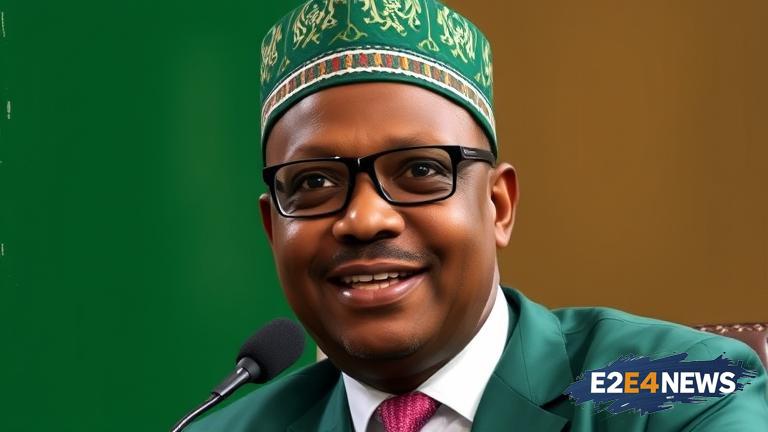The Nigerian political scene has been abuzz with the recent statement made by Joe Igbokwe, a prominent politician, who has tackled Peter Obi, a former presidential candidate, over his views on one-term presidency. Igbokwe, who is known for his outspoken nature, has been a vocal critic of Obi’s political ideology. In a recent interview, Igbokwe stated that being the President of Nigeria is not a matter of eating moi moi, a popular Nigerian dish, but rather a serious responsibility that requires experience and leadership skills. He argued that Obi’s stance on one-term presidency is not feasible and would only lead to instability in the country. Igbokwe’s comments have sparked a heated debate among Nigerians, with some supporting his views and others criticizing him for his attack on Obi. The debate has highlighted the deep divisions within the Nigerian political landscape, with different factions having varying opinions on the issue. Obi, who was the presidential candidate of the Labour Party in the 2023 elections, has been a strong advocate for one-term presidency, arguing that it would help to reduce the cost of elections and promote political stability. However, Igbokwe and other critics have argued that such a system would only lead to a lack of accountability and would not provide the necessary stability for the country. The issue of one-term presidency has been a contentious one in Nigerian politics, with different politicians having varying opinions on the matter. While some have argued that it would help to promote democracy and reduce the risk of political instability, others have argued that it would only lead to a lack of continuity and would not provide the necessary stability for the country. Igbokwe’s comments have also highlighted the role of social media in Nigerian politics, with many Nigerians taking to social media to express their opinions on the issue. The debate has also sparked a discussion on the need for political reform in Nigeria, with many calling for a review of the country’s electoral laws and political system. Despite the controversy surrounding his comments, Igbokwe has remained defiant, stating that he would continue to speak his mind on issues affecting the country. His comments have also sparked a reaction from Obi’s supporters, who have accused Igbokwe of being biased and trying to undermine Obi’s political ambitions. The debate has also highlighted the importance of leadership and experience in Nigerian politics, with many arguing that the country needs a leader with the necessary experience and skills to tackle its numerous challenges. Igbokwe’s comments have also sparked a discussion on the role of the media in Nigerian politics, with many calling for more responsible reporting and analysis of political issues. The controversy surrounding Igbokwe’s comments has also highlighted the need for greater transparency and accountability in Nigerian politics, with many calling for politicians to be more transparent in their dealings and to be held accountable for their actions. In conclusion, the debate over one-term presidency in Nigeria has highlighted the deep divisions within the country’s political landscape and the need for greater transparency and accountability in politics. While Igbokwe’s comments have sparked a heated debate, they have also highlighted the importance of leadership and experience in Nigerian politics. As the country continues to grapple with its numerous challenges, it is clear that the issue of one-term presidency will remain a contentious one in Nigerian politics. The debate has also sparked a discussion on the need for political reform in Nigeria, with many calling for a review of the country’s electoral laws and political system. With the 2023 elections still fresh in the minds of Nigerians, it is clear that the country’s political landscape will continue to be shaped by the debates and controversies surrounding issues like one-term presidency. The role of social media in Nigerian politics has also been highlighted by the debate, with many Nigerians taking to social media to express their opinions on the issue. As the country continues to evolve and grow, it is clear that the issue of one-term presidency will remain a contentious one in Nigerian politics. The need for greater transparency and accountability in politics has also been highlighted by the debate, with many calling for politicians to be more transparent in their dealings and to be held accountable for their actions. In the end, it is clear that the debate over one-term presidency in Nigeria has highlighted the deep divisions within the country’s political landscape and the need for greater transparency and accountability in politics.
